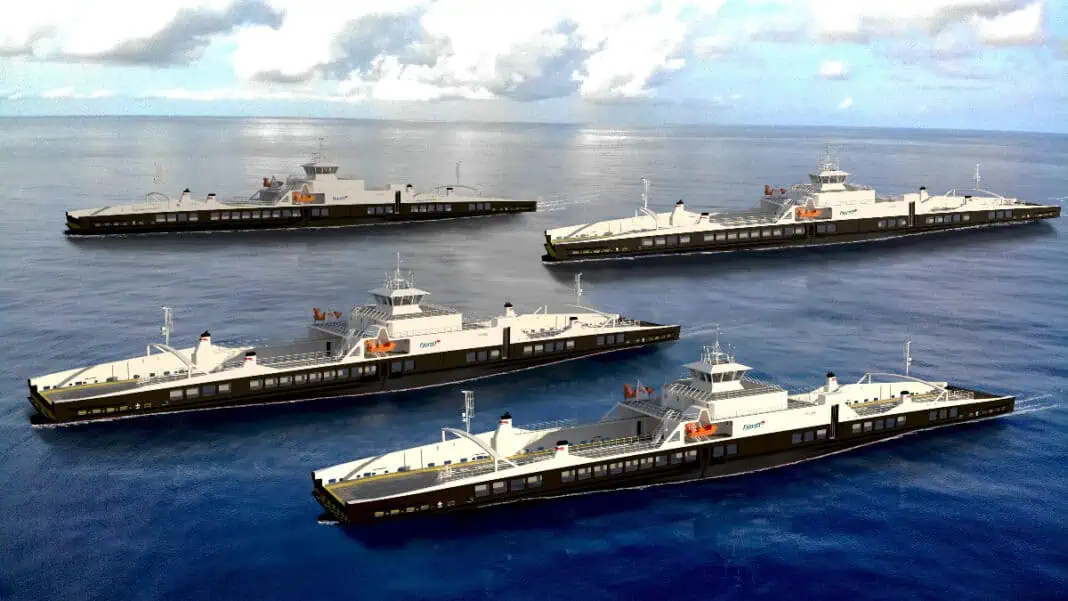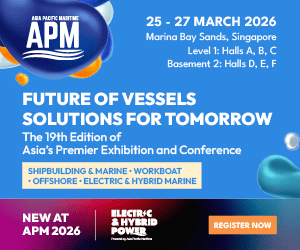A series of four zero-emission and autonomous ferries, built by the Turkish shipyard Tersan for the Norwegian ferry operator Fjord1, will be powered by SCHOTTEL EcoPellers. The double-ended ferries will be the first of their kind in the world. The ship design and an engineering package will be provided by HAV Design, Norway.
Two electrically powered SCHOTTEL EcoPellers of the type SRE 340 will be installed in each of the 120-meter-long and 18.60-meter-wide vessels. The L-Drive variant (“embedded L-Drive”) significantly reduces the installation height of the drives. Mechanical losses are further reduced by eliminating the upper gearbox. Together with the high hydrodynamic efficiency, this leads to significantly lower energy consumption and thus lower battery capacity, which in turn reduces operating and investment costs – all of which underlines Fjord1’s focus on efficiency, sustainability and continuous innovation.
The elimination of the upper gearbox brings another significant benefit: lower vibrations and noise levels, which significantly increases passenger comfort on board. Each unit has a propeller diameter of 2,100 mm and an input power of 1,200 kW. The drives will be equipped with the SCHOTTEL condition monitoring system MariHub, which enables condition-based maintenance.
Fjord1’s new autonomous ferries will improve connectivity on the Lavik-Oppedal route from September 2026 to provide passengers with a seamless travel experience. Each ship will have a capacity of 399 passengers including crew and 120 cars. In order to replace manual functions on board with a high degree of autonomy, a land-based control centre is planned to monitor the ferries and, if necessary, remotely control them.
The ferries will operate in the Sognefjord, about 60 miles north of the city of Bergen on Norway’s west coast. From September 2026, the zero-emission ferries will operate between Lavik and Oppedal. The introduction of automation features and autonomous systems – including autocrossing and autodocking – will take place in 2027, with autonomous navigation being implemented in 2028.












